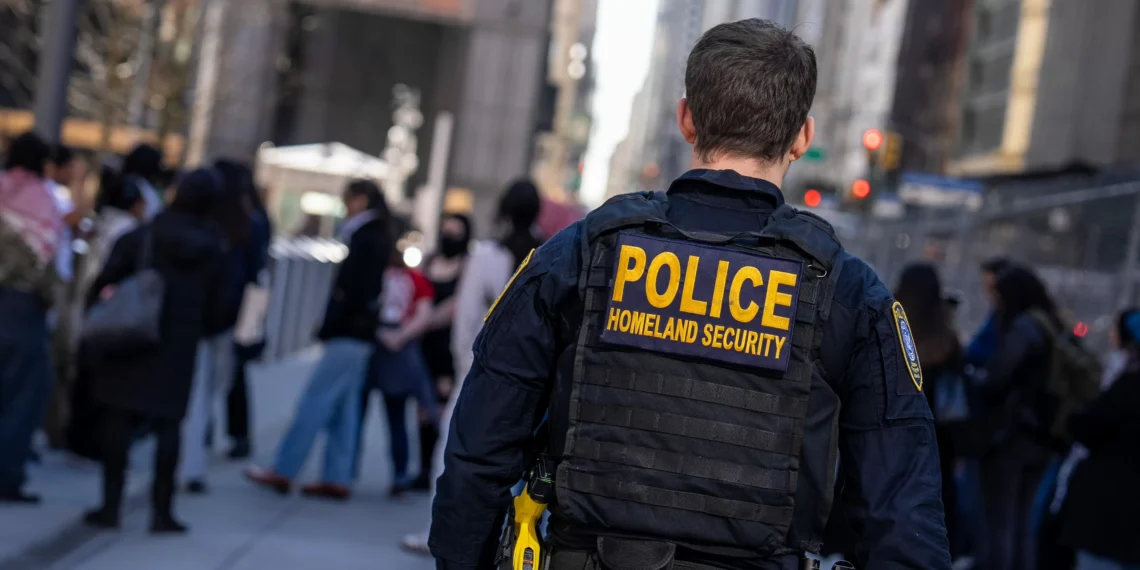The recent incident at Columbia University has brought to light the controversial use of warrants by the US Immigration and Customs Enforcement (ICE). It has been alleged that ICE obtained warrants under false pretenses in order to target a Palestinian-American student, who was involved in protests against the ongoing conflict in Gaza. This has sparked a debate about the legality and ethics of ICE’s actions, as well as the broader issue of immigration laws and their impact on students living on campus.
The law behind the warrants bars concealment of people in the country illegally, yet the students in question were legal residents living on campus. This raises questions about the validity of the warrants and the motives behind ICE’s actions. The student, who wishes to remain anonymous, has accused ICE of targeting him because of his activism and his ethnic background.
The incident has caused an uproar among the student community at Columbia University, with many expressing their support for the targeted student and condemning ICE’s actions. The university’s administration has also come under fire for their handling of the situation, with many questioning their role in protecting their students’ rights.
According to the student, he was approached by ICE agents at his dorm room and was asked to provide his identification. When he refused to comply, the agents presented him with a warrant that was issued based on false information. The warrant stated that the student was in violation of his visa, which was not the case. This raises serious concerns about the validity of the warrant and the intentions of ICE.
The incident has also brought to light the broader issue of immigration laws and their impact on students living on campus. The student in question was a legal resident and had every right to be on campus, yet he was targeted by ICE. This raises questions about the effectiveness of our immigration laws and whether they are being used to target certain groups of people.
Furthermore, this incident highlights the need for more transparency and accountability in ICE’s actions. The fact that ICE was able to obtain a warrant based on false information is deeply concerning and raises doubts about their methods and procedures. It is important for our government agencies to follow the law and ensure that their actions are justified and in the best interest of the public.
The student’s lawyer, Diala Shamas, has stated that this incident is just one example of many cases where ICE has used questionable methods to target individuals. She also expressed her concern about the chilling effect this could have on students and their right to free speech and expression.
In response to the incident, Columbia University’s President, Lee Bollinger, has released a statement expressing his support for the targeted student and condemning ICE’s actions. He also called for a thorough investigation into the matter and for ICE to be held accountable for their actions.
The incident at Columbia University has shed light on the controversial use of warrants by ICE and the broader issue of immigration laws and their impact on students. It is important for our government agencies to act ethically and within the boundaries of the law. The rights of individuals, regardless of their background, should be protected and respected. As a society, we must strive for justice and fairness for all.







